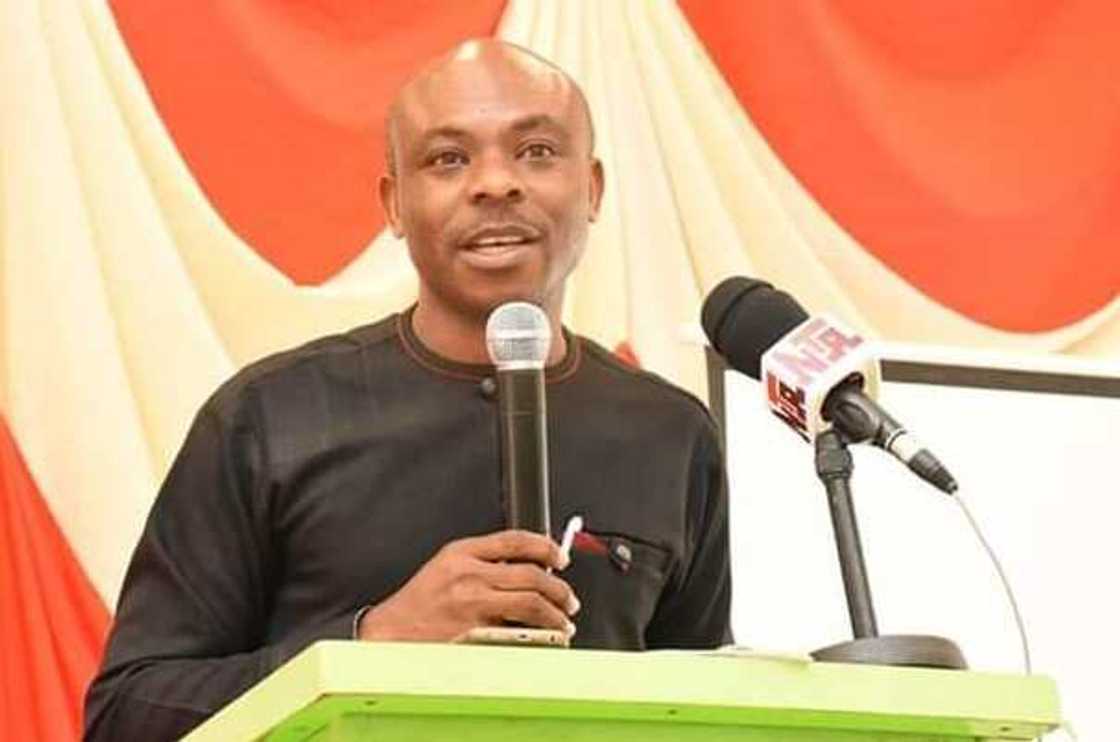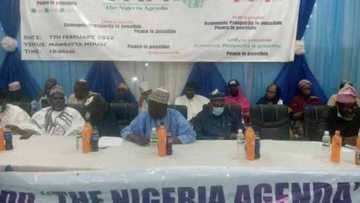Nigeria Union of Journalists Lauds NGOs’ Support to Deepen Healthcare Delivery
- The NUJ FCT Council has stressed the need to encourage more investments in Nigeria’s health sector
- The call was made by the chairman of the council, Emmanuel Ogbeche who said it will guarantee the well-being of citizens and reduce health tourism
- Ogbeche particularly lauded Smile Train, an organization currently in the process of building Africa’s first Cleft Centre for Excellence in Ghana
PAY ATTENTION: Click “See First” under the “Following” tab to see Legit.ng News on your Facebook News Feed!
FCT, Abuja - The Nigeria Union of Journalists (NUJ) has commended the intervention of some non-governmental organisations like Smile Train, Save the Children, Sight Savers, and fhi360 in bridging the healthcare gap in Nigeria's health sector.
Speaking during a media roundtable in Abuja, chairman of the NUJ FCT Council, Mr. Emmanuel Ogbeche, stressed the need to encourage more investments in Nigeria’s health sector to guarantee the wellbeing of citizens and reduce health tourism.

Source: Facebook
According to Ogbeche, the intervention of some NGOs in manpower development, infrastructure, and other medical supplies has given impetus to development in the sector.
He particularly lauded the partnership between Smile Train, a global cleft organisation with the West African College of Surgeons, the National Surgical, Obstetric, Anaesthesia and Nursing Plan (NSOANP), which has resulted in the training of hundreds of personnel in the health ecosystem.
Do you have a groundbreaking story you would like us to publish? Please reach us through info@corp.legit.ng!
His words:
“Interventions like these are rare and deserve our attention and time as journalists to ensure that the awareness reaches the grassroots so that everybody can benefit.
“As journalists, it is our duty to create this awareness and end the stigma that's still associated with cleft in our society.”
It is estimated that Smile Train has over the last decade performed more than 30,000 cleft surgeries at no cost to Nigerians as well as assisted healthcare institutions in the areas of manpower development, equipment procurement, maintenance, and upgrade across the country.
There has been a clamour from stakeholders for the government to increase healthcare spending and ramp up infrastructure in the sector.
Most medical professionals opined that the public spending in healthcare needs to increase from the current 1.2 percent to at least 2.5 percent of GDP in the next 3 years, much of which should be invested in creating and modernizing the country’s outdated and decaying infrastructure.
How Myths and Taboos Hinder Access to Free Quality Cleft Care in Nigeria
Recently, Michael Ahundu, a population and development enthusiast based in Sokoto and Emily Manjeru, communications manager for Africa at Smile Train, wrote on how myths and taboos hinder access to free quality cleft care in Nigeria.
They noted that in many African societies, having a child with congenital defect is often considered a punishment by the gods for the parent/parent’s past sins or offenses.
They also added that certain customs and traditions are so averse to people born with physical challenges, associating it with bad luck and negative omens.
Source: Legit.ng




